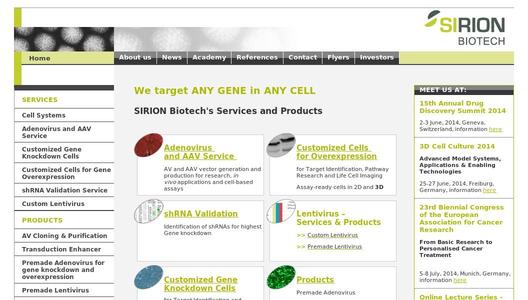A key safety concern is the risk of transmission of infectious agents by inadequately tested products, specifically any replication competent adenovirus (RCA) still being administered to the patient. RCA comes from working with the most common production cell line used for replication defective adenovirus vectors, HEK293. Besides ethical concerns around HEK293, the cell line may complement the critical E1 replication gene that is lacking in the vector. The concern that RCA could lead to adverse events in patients led FDA to recommend limits on RCA levels in clinical lots of adenovirus vectors.
SIRION Biotech engineered adenovirus with CAP®-cells that are being derived from normal human amniocytes and which yield authentic human glycosylation patterns. Large scale production processes were mimicked. SGS, the world's leading inspection, verification, testing and certification company, applied an extended in vitro assay using A549 cells. Following an initial cytotoxicity assay, the vector preparation was tested in an interference assay at various titres. Cultures were incubated for 31 days with 3 blind passgaes at 7 day intervals. No evidence for the presence of RCA was found, no interference with the wild type Ad5 control in the presence of the test material.

